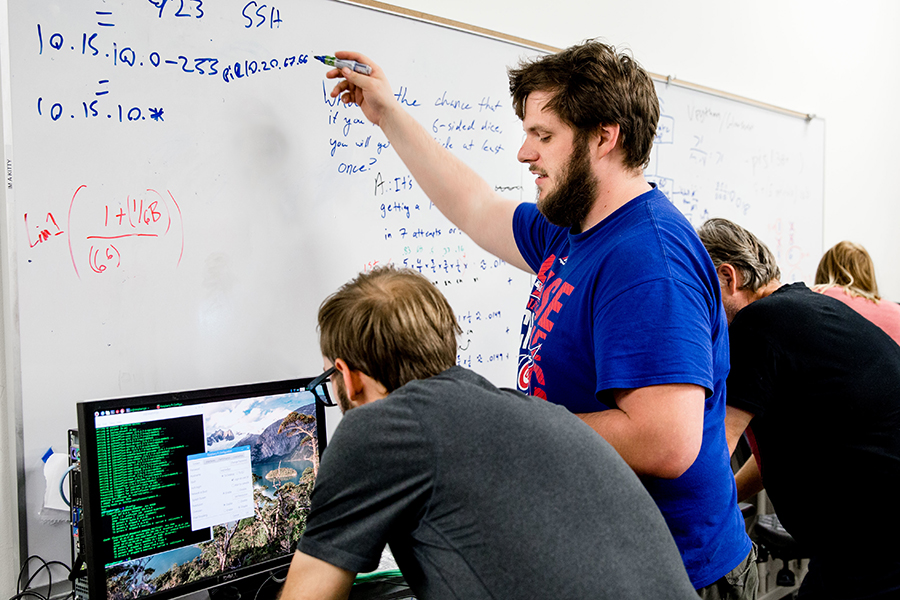About Computer Science
You will gain the knowledge and tools to design, build, and understand complex computer systems. You'll get to apply your skills to practical problems using knowledge from other fields, such as music, art, linguistics, physics, statistics, and ecology.
Computer science is a dynamic and interdisciplinary field of study where you will work on projects that apply theory to real problems and participate in exciting challenges.
Explore computer science at a range of levels: from a basic understanding of how computers work to a deeper level of computer systems and how they integrate with other disciplines. Exciting topics include artificial intelligence, machine learning, robotics, and parallel programming. Students have participated in cybersecurity competitions and won awards, including at the Pacific Rim Collegiate Cyber Defense Competition. In addition, you can seek internships and paid peer-tutoring opportunities.
This field prepares you for graduate studies and graduates work for organizations across the industry, such as at Canonical (the developer of the Linux Ubuntu operating system), medical software startups, F5 Networks (which makes network routers and firewalls), Twitter, and Washington state government agencies.
Check out related Courses and Programs in the Academic Catalog
Facilities & Resources
You’ll work on projects that apply theory to real problems and participate in exciting challenges.
Academic Computing Center
As Evergreen’s computing hub, the center has four computing classrooms and offers printers, scanners, and a commons area that boasts more than 50 computers running Mac OS 10.7, Windows 7, or Ubuntu Linux. It also has several specialty stations, including a digital video workstation and an audio workstation. Student techs and Academic Computing staff are available to assist with computing questions and needs.
Computer Applications Lab (the CAL)
The home of Scientific Computing at Evergreen, the CAL supports students enrolled in the physical and natural sciences. Each of its two teaching labs contains 26 workstations.
PLATO Technology and Lecture Series Grants
Royalties received from the PLATO computer-aided instruction materials developed at Evergreen support technology grants and an annual lecture series on computer-related topics. The Lecture Series (a.k.a. Cutting Edge Symposium) supports an annual guest speaker series on computers and technology. Some past themes include computers in the arts, software engineering, artificial intelligence, and the Internet. Technology grants support projects that strengthen and enhance curriculum incorporating the use of computer technology.
Robotics
Evergreen offers students a collection of tools to make robots, including Arduino microcontrollers, Scribblers, and iRobots.
The Quantitative and Symbolic Reasoning Center
Evergreen’s QuaSR Center provides a supportive space for students who need assistance in a variety of topics. During the school year, drop-in tutoring is available six days a week. The center’s student tutors have demonstrated expertise in the subjects they teach.
